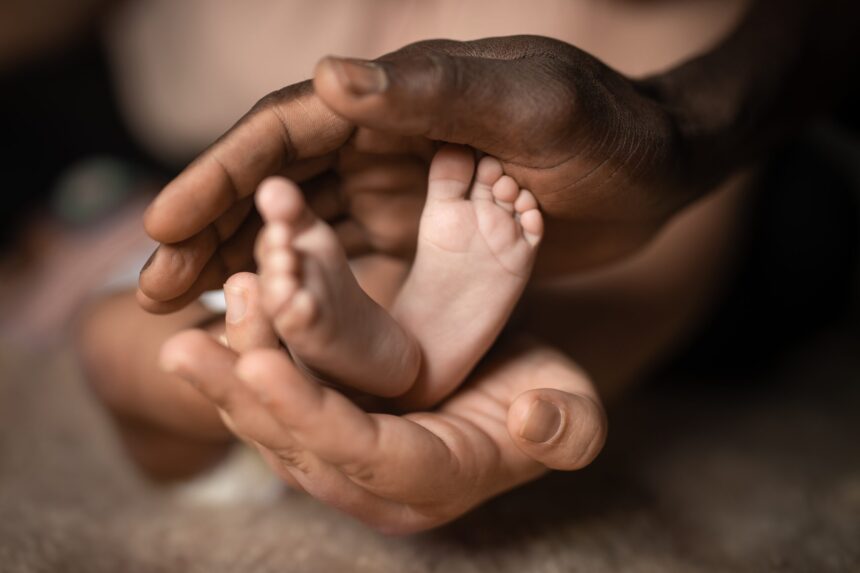The department has also launched an investigation into why Thavhana was unable to secure an ambulance to take her to the hospital when she went into labour the following day.
Health Minister Dr. Joe Phaahla has also weighed in on the incident, expressing his concern and stating that the department will ensure that such incidents do not happen again.
Meanwhile, Thavhana is grateful for the assistance she received from Luvhimbi and the staff at Siloam Hospital. She is relieved that both she and her baby are healthy and doing well.
Despite the traumatic experience, Thavhana remains positive and hopes that her story will shed light on the challenges faced by pregnant women in rural areas when it comes to accessing medical care.
She urges the government to prioritize improving emergency services in remote areas to prevent similar incidents from happening in the future.
For now, Thavhana is focusing on caring for her newborn daughter and recovering from the ordeal. She is grateful for the support she has received from her community and hopes that her story will inspire positive change in the healthcare system.
As for Luvhimbi, she is being hailed as a hero for her quick thinking and selfless actions in helping Thavhana deliver her baby. She remains humble and grateful for the opportunity to assist in such a miraculous moment.
Overall, this incident serves as a reminder of the importance of accessible and reliable healthcare services, especially for pregnant women in need of urgent medical attention. It highlights the resilience and strength of individuals like Thavhana and Luvhimbi, who come together in times of crisis to ensure the well-being of others.
It is hoped that this story will spark meaningful conversations and actions towards improving healthcare services in rural areas, ultimately ensuring that no woman is forced to give birth in the streets due to a lack of medical assistance.
The impact of social media on mental health
Social media has become an integral part of our daily lives, with millions of people around the world using platforms like Facebook, Instagram, Twitter, and TikTok to connect with friends, family, and strangers. While social media has many benefits, such as allowing us to stay in touch with loved ones and access information quickly, there is growing concern about its impact on mental health.
One of the main ways that social media can affect mental health is through comparison. When we scroll through our feeds and see carefully curated posts showcasing the highlights of others’ lives, it can lead to feelings of inadequacy and low self-esteem. This phenomenon, known as “social comparison,” can make us feel like we are not measuring up to our peers and can contribute to feelings of depression and anxiety.
Another way that social media can impact mental health is through cyberbullying. With the anonymity that the internet provides, people may feel emboldened to say hurtful things to others online. This can lead to feelings of shame, embarrassment, and isolation, and can have long-lasting effects on a person’s mental well-being.
Additionally, social media can contribute to feelings of FOMO, or the fear of missing out. When we see our friends posting about parties, vacations, or other exciting events that we were not invited to, it can lead to feelings of loneliness and exclusion. This fear of missing out can also lead to compulsive checking of social media, which can be detrimental to our mental health.
Furthermore, social media can also impact our sleep patterns. The blue light emitted from screens can disrupt our circadian rhythms and make it difficult to fall asleep. Spending hours scrolling through social media before bed can lead to insomnia and poor sleep quality, which can have a negative impact on our mental health.
Despite these negative effects, social media can also have positive impacts on mental health. For example, it can provide a sense of community and support for those who may feel isolated in their everyday lives. Social media can also be a platform for self-expression and creativity, allowing individuals to share their thoughts, ideas, and artwork with a wider audience.
In conclusion, while social media has many benefits, it is important to be mindful of its impact on our mental health. It is important to set boundaries for ourselves when it comes to social media use, such as limiting screen time and taking breaks from the constant barrage of information. By being aware of the potential negative effects of social media and taking steps to mitigate them, we can ensure that our online interactions are healthy and positive for our mental well-being.








